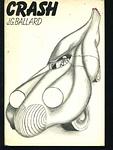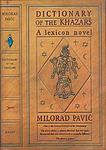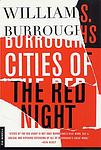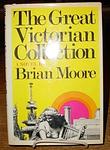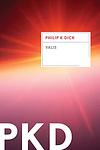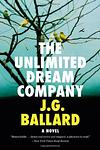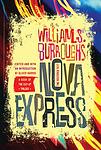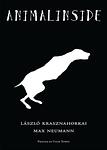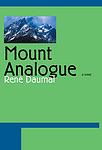The Greatest "Experimental, Speculative Fiction" Books of All Time
Click to learn how this list is calculated.
This list represents a comprehensive and trusted collection of the greatest books. Developed through a specialized algorithm, it brings together 300 'best of' book lists to form a definitive guide to the world's most acclaimed books. For those interested in how these books are chosen, additional details can be found on the rankings page.
Genres
The "Experimental" category of books is characterized by works that challenge traditional literary conventions and push the boundaries of form and content. These books often incorporate unconventional narrative structures, language, and themes, and may experiment with different mediums such as poetry, visual art, or multimedia. The goal of experimental literature is to create new and innovative ways of storytelling that challenge readers' expectations and expand the possibilities of what literature can be.
Speculative fiction is an umbrella genre encompassing narrative fiction with supernatural or futuristic elements. This includes genres such as science fiction, fantasy, horror, supernatural fiction, superhero fiction, utopian and dystopian fiction, apocalyptic and post-apocalyptic fiction, and alternate history. The unifying factor of speculative fiction is its departure from the narrative constraints of reality, exploring imaginative and often profound questions that challenge our understanding of the world and our place within it. These stories often delve into themes like the human condition, social commentary, and the exploration of philosophical and ethical dilemmas through the lens of the fantastical or the yet-to-be-possible. By pushing the boundaries of the known, speculative fiction invites readers to consider the myriad possibilities of existence and the potential consequences of our actions in worlds that are, at once, vastly different from and eerily similar to our own.
Countries
Date Range
Reading Statistics
Click the button below to see how many of these books you've read!
Download
If you're interested in downloading this list as a CSV file for use in a spreadsheet application, you can easily do so by clicking the button below. Please note that to ensure a manageable file size and faster download, the CSV will include details for only the first 500 books.
Download-
1. Gravity's Rainbow by Thomas Pynchon
Set during the end of World War II, the novel follows Tyrone Slothrop, a lieutenant in the U.S. Army, as he tries to uncover the truth behind a mysterious device, the "Schwarzgerät", that the Germans are using in their V-2 rockets. The narrative is complex and multi-layered, filled with a vast array of characters and subplots, all connected by various themes such as paranoia, technology, and the destructive nature of war. The book is known for its encyclopedic nature and its challenging, postmodernist style.
-
2. Berlin Alexanderplatz by Alfred Döblin
Set in 1920s Berlin, the book follows the life of Franz Biberkopf, a man recently released from prison who is trying to make an honest life for himself. However, he is drawn back into the criminal underworld due to circumstances and the influence of his acquaintance, Reinhold. The book is a vivid portrayal of city life in Weimar-era Germany, exploring themes of poverty, crime, redemption and the struggle to maintain one's morality amidst chaos and corruption.
-
3. The Crying of Lot 49 by Thomas Pynchon
The novel follows the journey of a woman who stumbles upon a centuries-old conflict between two mail distribution companies when she is appointed the executor of her ex-lover's will. As she delves deeper into the mystery, she begins to question her own sanity and the reality of the conspiracy itself. The story explores themes of communication, interpretation, and the struggle to find meaning in a chaotic world.
-
4. Crash: A Novel by J. G. Ballard
The novel revolves around a man who becomes sexually aroused by staging and participating in real car-crashes, a fetish that spirals further out of control when he meets a like-minded woman. It explores the disturbing intersection of technology, sexuality, and violence, pushing the boundaries of social norms and challenging the reader's perception of reality.
-
5. The Third Policeman by Flann O'Brien
"The Third Policeman" is a darkly comedic and surreal novel about a nameless narrator who, after committing a murder to raise funds for his scholarly obsession with a bizarre pseudo-scientific theory, finds himself wandering in an eerie, nightmarish landscape. He encounters strange characters, including a pair of eccentric policemen who are obsessed with bicycles, and becomes embroiled in a series of increasingly absurd and ludicrous situations. The novel explores themes of existence, reality, and the nature of hell, with a twist ending that forces the reader to question everything they've read.
-
6. Lanark by Alasdair Gray
"Lanark" is an unconventional narrative that combines elements of fantasy, dystopia, and realism. The protagonist, a man named Lanark, moves through two parallel existences. In one, he's a young man named Duncan Thaw in post-war Glasgow, struggling with his artistic ambitions and personal relationships. In the other, he's Lanark in the grim, bureaucratic city of Unthank, suffering from a mysterious skin condition and grappling with his identity and purpose. The novel explores themes of love, alienation, creativity, and the human condition, presenting a complex and thought-provoking portrait of life and society.
-
7. Dhalgren by Samuel R. Delany
The novel follows the journey of a poet with amnesia, known only as the Kid, through a dystopian city named Bellona. The city has been isolated from the rest of the world following a catastrophic event of unknown origin. The Kid navigates through a society where time, identity, and reality are all fluid, engaging with various groups of outcasts and explorers. The narrative is marked by its experimental style, incorporating elements of science fiction, surrealism, and metafiction.
-
8. Story of the Eye by Georges Bataille
This novel is a provocative exploration of the dark side of human nature, featuring two teenage characters who engage in increasingly bizarre and violent sexual games. Their actions, driven by their obsession with eroticism and death, lead them into a world of perversion and madness. The narrative is filled with explicit sexual content and shocking imagery, reflecting the author's fascination with the transgressive and the taboo.
-
9. The Female Man by Joanna Russ
"The Female Man" is a thought-provoking science fiction novel that explores the lives of four women from different dimensions and time periods. As they navigate their respective worlds, the women confront gender inequality, societal expectations, and the limitations imposed on them by a patriarchal society. Through their encounters and conversations, the novel challenges traditional gender roles and offers a powerful critique of sexism and discrimination.
-
10. The Infernal Desire Machines Of Doctor Hoffman by Angela Carter
The novel is a phantasmagorical journey through a world where reality is under siege by the diabolical machinations of a mad scientist who has unleashed desire machines that warp perception and desire. The protagonist, Desiderio, an employee of the Ministry of Determination, embarks on a quest to stop Doctor Hoffman, confronting a series of bizarre and surreal challenges that blend eroticism, philosophy, and violence. As Desiderio travels through cities and landscapes transformed by the machines, he encounters a cast of eccentric characters and experiences dreamlike adventures that challenge the boundaries of reality, identity, and sanity, culminating in a confrontation with the enigmatic Doctor and the resolution of his own complex relationship with Hoffman's daughter.
-
11. The Egghead Republic by Arno Schmidt
The book is a satirical science fiction novella that takes readers on a journey through a post-apocalyptic world. Set in a future where a catastrophic event has fragmented society, the story follows a journalist as he travels to an artificial island known as the Egghead Republic, a haven for intellectuals and scientists. This enclave is dedicated to preserving knowledge and culture amidst the chaos of the outside world. The narrative is characterized by its linguistic inventiveness and complex wordplay, as it explores themes of isolation, the role of intellectuals in society, and the nature of human civilization through the lens of a dystopian future.
-
12. Dictionary of the Khazars by Milorad Pavic
"Dictionary of the Khazars" is a metaphysical, historical novel written in the form of a lexicon. The book presents three different versions - Christian, Islamic, and Hebrew - of the history of the Khazars, an ancient people who converted to one of these three religions. The novel, filled with dreamlike narratives and fantastical elements, invites the reader to become an active participant, choosing their own path through the non-linear text, and even solving a murder mystery embedded within the story.
-
13. Cities of the Red Night: A Novel by William S. Burroughs
"Cities of the Red Night: A Novel" is a surreal, hallucinatory narrative that intertwines three storylines: an 18th-century pirate crew seeking utopia, a detective investigating a series of grotesque murders, and a pandemic causing spontaneous orgasms. The novel explores themes of homosexuality, anarchism, and the occult, using its disjointed narrative structure to challenge traditional understandings of time, space, and reality.
-
14. Insatiability by Stanisław Ignacy Witkiewicz
The novel is a dystopian narrative set in a future where a new Asian empire has conquered Europe. The story follows a young Polish man who, while initially indulging in hedonistic pursuits, becomes increasingly disillusioned with the world around him. As the new empire introduces a mysterious substance known as Murti-Bing pills, which create a sense of contentment and indifference in the populace, the protagonist grapples with the loss of individuality and the erosion of human spirit in society. The narrative is a critique of totalitarian regimes and the dangers of mass conformity.
-
15. The Great Victorian Collection by Brian Moore
"The Great Victorian Collection" is a captivating novel that follows the journey of a wealthy collector who becomes obsessed with acquiring a vast collection of Victorian artifacts. As he delves deeper into his obsession, he becomes entangled in a world of deception, greed, and scandal. Set in the backdrop of 1950s London, this thought-provoking and atmospheric tale explores the dark side of obsession and the consequences it can have on one's life.
-
16. VALIS by Philip K. Dick
The novel follows a mentally unstable man who begins to experience visions after being hit by a mysterious pink light. Convinced the light is a divine entity named VALIS, he and his friends embark on a quest to understand and communicate with it. As they delve into philosophy, religion, and science, the boundaries between reality and delusion begin to blur, leaving both the characters and the reader questioning the nature of existence.
-
17. The Cannibal: Novel by John Hawkes
The novel revolves around a small German town during World War II and its aftermath. The narrative is fragmented and nonlinear, filled with surreal and horrific scenes. The story is a blend of reality and dream, and it explores the themes of violence, power, sexuality, and the human capacity for evil. The protagonist is a traumatized and disfigured war veteran who is both repulsed and fascinated by the violence and cruelty around him.
-
18. Briefing For A Descent Into Hell by Doris Lessing
In this novel, a man found wandering the streets of London with no memory is admitted to a psychiatric hospital, where doctors attempt to diagnose and treat his condition. As he remains in a comatose state, the narrative delves into his complex inner world, blending reality with fantastical visions. Through his journey, the book explores themes of identity, the human psyche, and the boundaries between sanity and madness. The narrative challenges the conventional understanding of mental illness and the nature of reality, inviting readers to question the structures of society and the mind.
-
19. The Unlimited Dream Company by J. G. Ballard
In this novel, a man crashes a stolen aircraft into the Thames River near a quiet London suburb, only to emerge unscathed and with the newfound ability to transform reality. As he begins to exert a strange and seductive influence over the town's inhabitants, the boundaries between the mundane and the fantastic blur. The protagonist's powers grow, leading to a surreal and psychedelic transformation of the town, its people, and himself. The narrative explores themes of liberation, sexuality, and the human psyche, presenting a hallucinatory vision of human potential and the limitless expanses of the imagination.
-
20. Nova Express by William S. Burroughs
In this experimental novel, the protagonist, a detective, navigates a dystopian world where control systems manipulate human behavior. The narrative is a complex interweaving of hallucinatory landscapes and seedy characters, punctuated by the author's unique 'cut-up' technique. The book is a critique of societal control mechanisms, exploring themes of addiction, sexuality, and the human condition. It is part of a larger series that uses science fiction and satire to challenge conventional narrative structures and societal norms.
-
21. The Soft Machine by William S. Burroughs
"The Soft Machine" is a surreal and experimental novel that employs a non-linear narrative and the cut-up technique, a method of rearranging or juxtaposing text to create new meaning. The book explores themes of control, conformity, and corruption in society, using a variety of characters and settings, including a junkie, a time traveler, and various dystopian societies. The narrative is marked by its explicit content and its critique of traditional societal structures, making it a notable work of the Beat Generation.
-
22. The Stain: A Novel by Rikki Ducornet
"The Stain" is a gothic, surreal novel set in a small French village during the 19th century. The plot revolves around a girl named Charlotte who is born with an unusual birthmark and is subsequently ostracized by her superstitious community. As Charlotte grows older, she develops a unique understanding of the world around her, which is both a gift and a curse. The book is a blend of fantasy and reality, exploring themes of difference, otherness, and the human capacity for cruelty and kindness.
-
23. Animalinside by László Krasznahorkai, Max Neumann
"Animalinside" is a haunting and surreal novella that delves into the mind of a narrator who becomes consumed by an animalistic alter ego. As the protagonist's thoughts and actions blur the line between human and animal, the narrative takes on a dark and disorienting tone, exploring themes of identity, violence, and the primal instincts that lie within us all. Through the collaboration of Krasznahorkai's mesmerizing prose and Neumann's striking illustrations, "Animalinside" offers a mesmerizing and thought-provoking exploration of the human psyche.
-
24. T Zero by Italo Calvino
"T Zero" is a collection of complex, imaginative stories that blend scientific concepts, mathematical structures, and literary experimentation. The work challenges the boundaries of time, space, and narrative convention, weaving together a tapestry of tales that explore the nature of reality, causality, and human perception. Through a series of thought-provoking vignettes, the book delves into the paradoxes of existence, employing a playful yet profound use of language to question the very framework of storytelling and the universe it attempts to describe.
-
25. Mount Analogue by René Daumal
The book is a novel that combines surreal adventure with philosophical inquiry, telling the story of an expedition to a mysterious, inaccessible mountain that represents a spiritual quest. The mountain, which connects Earth to Heaven, can only be perceived by those who have refined their inner vision. The narrative follows the explorers as they embark on their journey, facing various challenges and revelations that mirror the inner landscapes of human consciousness and the pursuit of enlightenment. As the climbers ascend, the novel delves into themes of reality, symbolism, and the pursuit of the absolute, ultimately leaving the reader with a contemplation of the unattainable peak of human knowledge and experience.
Reading Statistics
Click the button below to see how many of these books you've read!
Download
If you're interested in downloading this list as a CSV file for use in a spreadsheet application, you can easily do so by clicking the button below. Please note that to ensure a manageable file size and faster download, the CSV will include details for only the first 500 books.
Download


